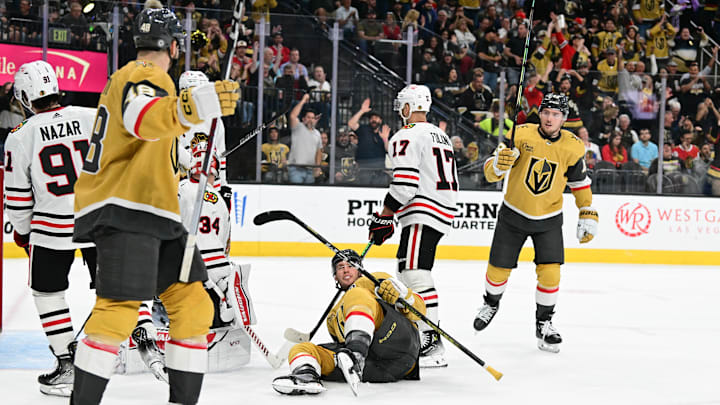Here's a question for you, dear reader. Try defining the term of hooking. It's a term in hockey that leads to a penalty and that's the only hint you're getting. What did you come up with? The answer will come up later with a full-blown explanation of its context. In the meantime, it's not where a hockey player stands on a street corner for some action.
If you guessed that, I got an Arnold to sell you.
Let's just say that teams like the Vegas Golden Knights deal with these penalties consistently. No players are safe, whether it's Brayden McNabb or Noah Hanifin. It can stop any momentum a team has, leaving their opponents on the power play. It's a scenario no team wants, which is why it's best to avoid this.
This site has gone over the various penalties within the game of hockey. That includes goaltender interference and boarding, which have their own consequences. But let's explore the art of hooking in hockey. What does it mean? How does it happen? Don't forget those No. 2 pencils and notepads because it's time for another hockey lesson. It's time to learn about hooking and why it's a bad penalty.
The definition of hooking in hockey (and why the Vegas Golden Knights should avoid this)
Hooking in hockey is defined as when the player uses their stick to slow down their opponent's progress. This can be done to push, pull, or impede the other player's progress. Generally, this is done as the opponent races towards the goal, where they have a good scoring opportunity. The punishment for the penalty is generally a two-minute minor. However, five-minute majors can be called depending on the severity.
Imagine this scenario. Brayden McNabb is trying to defend Connor McDavid. The Oilers superstar slips past McNabb, leaving the defenseman no choice but to use his stick to impede his progress. The Vegas Golden Knights get a two-minute minor, leaving them on the penalty kill. Considering the Edmonton Oilers are lethal on the power play, that's bad news.
No matter if it's McNabb or Noah Hanifin, it's best to avoid this penalty at all costs. It can leave any team reeling from the call and their opponents ready to pounce on the opportunity. That's especially true with a contending team like the Golden Knights, who want another Stanley Cup to their collection. It's as bad as a hockey player standing on a street corner, waiting to lay out an unsuspecting citizen.
